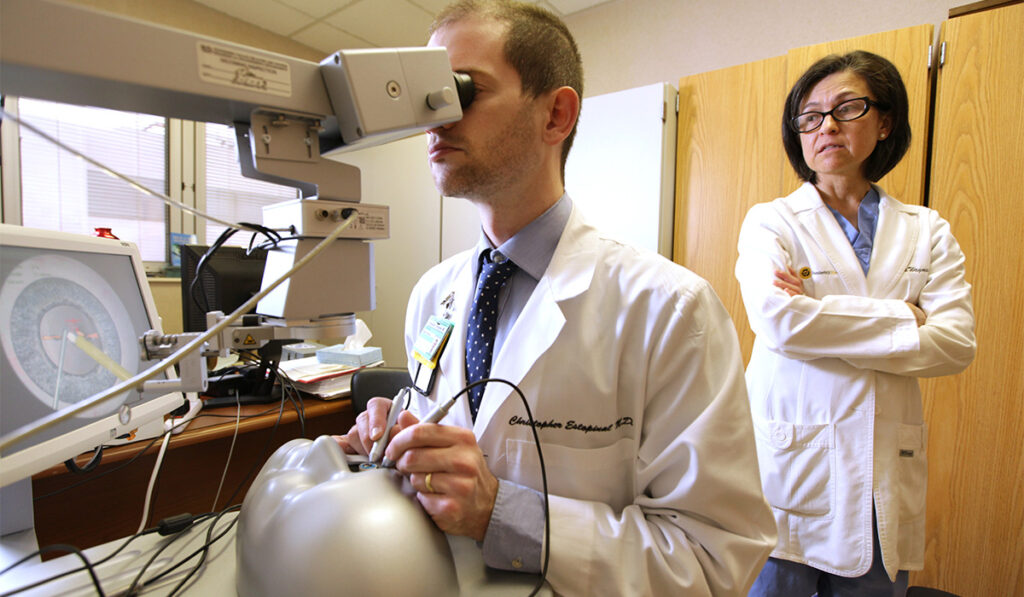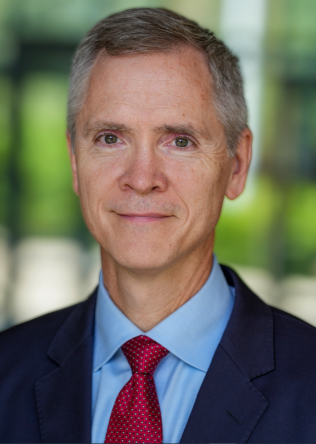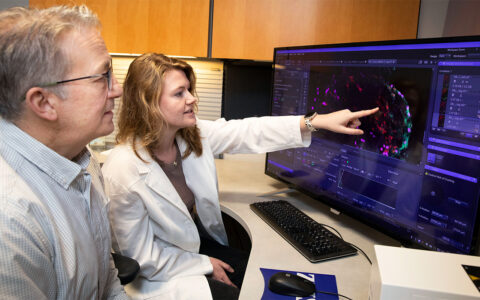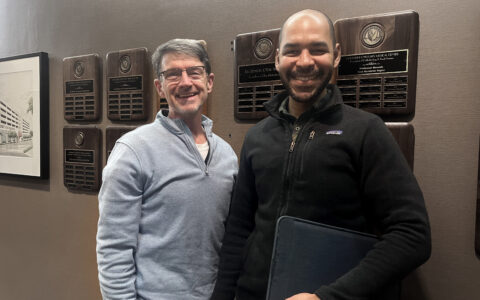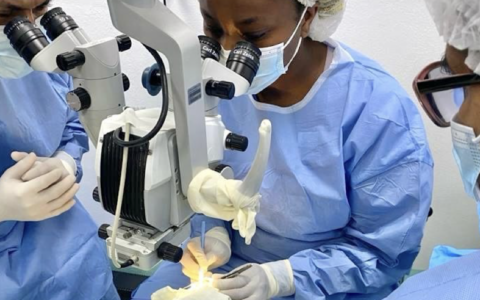David K. Wallace, M.D., MPH., chair of ophthalmology and visual sciences and director of the Vanderbilt Eye Institute at Vanderbilt University Medical Center. Wallace recently spoke with Discoveries in Medicine about his vision for Vanderbilt Eye Institute, as well as the issues facing the specialty today.
Discoveries: Welcome, Dr. Wallace. What are some of the things you’re most excited about and what are some of the challenges you face in accomplishing your goals?
David Wallace:
I am most excited about the people – about working with the talented team of individuals at the Vanderbilt Eye Institute and collaborating with leaders across Vanderbilt to grow our clinical and research programs, deliver personalized care to our patients, and train the next generation of leaders in ophthalmology.
Focus on Patients
Discoveries: What does personalized care look like in ophthalmology?
David Wallace: In our consumer-driven society, patients expect to get their health care differently. This includes, of course, expanding digital scheduling and virtual visits; but it’s also about delivering care at convenient and focused locations. We want to grow where our patients need us to be. For example, some patients can save time and travel by having an image taken of their retina, followed by a virtual meeting with their doctor from the comfort of their home.
The second part of the patient equation is personalized medicine. Vanderbilt is a global leader in harnessing the power of big data to deliver personalized medicine and preventative care, and we’d like to leverage this bioinformatics expertise in vision research and vision care.
I’d also like to emphasize the need to help the underserved in our communities. How do we reach those with socioeconomic barriers and give them the high-level vision care they need? We must lead in community health research, implement strategies to help close the gaps, and engage in informed advocacy. Our training programs will include education and experience in delivering care to those most in need.
Cultivate Specialists
Discoveries: What about recruiting and retention? What are the challenges in building a diverse team of clinicians and staff who want to stay at Vanderbilt for the long term?
David Wallace:
There is a shortage of doctors pursuing some sub-specialties of ophthalmology, including pediatric ophthalmology, neuro-ophthalmology and uveitis. As a field, we must develop some creative approaches to attracting doctors to these sub-specialties. It’s possible that we will offer new training paths; for instance, pediatric ophthalmologists could come through pediatric residency programs in addition to ophthalmology programs.
“Retention of our team members is critical.”
Retention of our team members is critical. We are just now emerging from the “great resignation” that battered our health care workforce. There are many ways for us to keep our team members engaged in their work, staying with us, and attracting others to want to work with us.
First, that means having efficient and effective practices that run smoothly. Second, we want to give all a voice in improving processes. Third, team members should see a career path that excites them. When they succeed in their current position, there is an even better opportunity with us around the corner. Fourth, we must be intentional about recognizing and appreciating good work, as well as giving our team members opportunities to connect with each other.
We know diversity benefits everyone, and we are working to diversify our field through programs such as the American Academy of Ophthalmology Minority Mentoring Program. Within our department, I am passionate about promoting an inclusive culture where everyone feels welcomed, valued, and that their voice is heard.
Next Gen Training
Discoveries: Education is a big part of your mission. What are your thoughts on training?
David Wallace: Our educational programs encompass all areas of eye care and vision science and include 20 ophthalmology residents, 11 post-residency fellowship positions, postdoctoral research fellows, and medical and graduate students. We have training programs for pediatric optometrists, orthoptists and ophthalmic technicians.
These days, the simulation equipment is so good that before our residents perform surgery on humans, they’ve done many, many simulated surgeries. We want to enhance and expand that ability, and that means purchasing the state-of-the-art simulation equipment.
Preserve and Protect Vision
Discoveries: What are some of the opportunities and challenges you see in sustaining a successful research program in visual sciences?
David Wallace: One challenge is the vigorous competition for NIH and foundation funding and the high cost of research and technology. We are currently ranked No. 4 nationally in NIH funding. However, we are not satisfied – we need to build on that and continue to align our goals with those of the National Eye Institute.
“Team science and collaboration across disciplines are key to successful research programs.”
We’re really strong in basic and translational research, and I think we want to strategically enhance that over time. Team science and collaboration across disciplines are key to successful research programs, and Vanderbilt does these well.
I’d also like to expand and enhance our clinical research through increased involvement in impactful, interventional clinical trials that change people’s lives.
